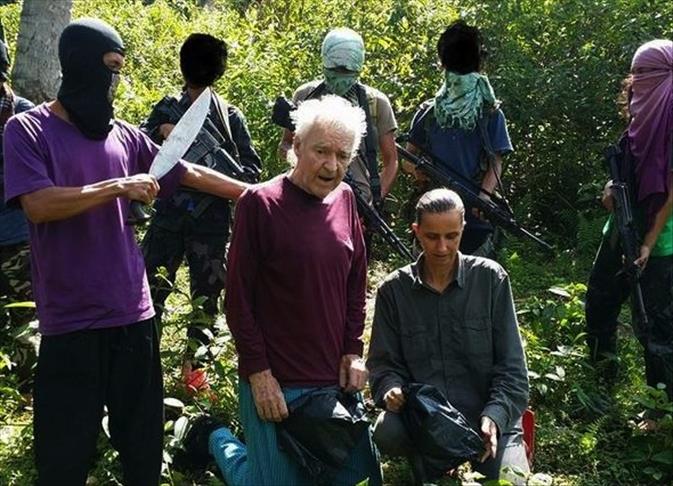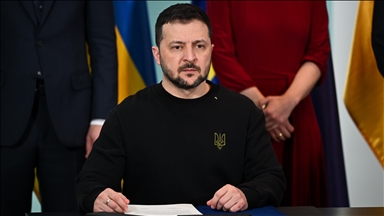
ZAMBOANGA CITY, Philippines
By Hader Glang
A Philippines army chief has said that plans to rescue two German hostages the Abu Sayyaf has threatened to behead are on hold as the German embassy in the Philippines and a local crisis committee have begun negotiations for their release.
Gen. Gregorio Pio Catapang Jr. was quick to clarify in an interview with Manila DZBB "Super Radio" in Manila on Wednesday that the military is not involved in the talks as they run contrary to the army’s policy of not negotiating with rebels and “terrorists.”
He underlined that it was the German embassy and the Sulu crisis committee who were taking part.
The couple disappeared in waters off Palawan Island on April 25 while sailing to Malaysia for a holiday, and were reported missing after Filipino fishermen spotted their empty yacht.
Earlier this month, the al-Qaeda-linked group threatened to behead one of them October 10 unless a P250-million ($5.62-million) ransom is paid and Germany stops supporting a U.S.-led campaign against the Islamic State in Iraq and the Levant (ISIL).
On Thursday, a spokesman - who claimed to be speaking for the group - told local radio that the deadline had been extended.
"After October 17, 2014, Friday, at 3 p.m, you will not see one of them alive. It will be seen by the public so that we can show that we are not playing games," he stated.
On Monday, the duo - Stefan Viktor Okonek, 71, and Herike Diesen, 55 - appealed to both the Philippine and German governments to exert all efforts to secure their freedom in an interview over radio station RMN-Zamboanga.
“We are trying to analyze the situation,” the army chief said Wednesday.
He explained that while more than 1,000 extra soldiers had been deployed to the southern Sulu province - an Abu-Sayyaf stronghold - with the army tracking the movement of the abductors, the military had to be careful in ensuring the safety of the hostages.
“We cannot just go there [and] do the rescue, and then all of a sudden those who will be rescued will be part of the collateral damage,” he said.
“Of course, if there is chance that we can get them without obtaining collateral damage, we will take it,” Catapang added.
Last Friday, Defense Secretary Voltaire Gazmin ordered the deployment of additional troops, while stressing that the government would not negotiate over the ransom demand.
Since 1991, the Abu Sayyaf -- armed with mostly improvised explosive devices, mortars and automatic rifles -- has carried out bombings, kidnappings, assassinations and extortions in a self-determined fight for an independent Islamic province in the Philippines.
It is notorious for beheading victims after ransoms have failed to be paid for their release.
ISIL has captured large swathes of land in Iraq and Syria, later declaring the territories under its control an Islamic "caliphate." The U.S. and its Arab allies began bombing ISIL targets inside Syria on Tuesday, after conducting airstrikes in Iraq since August.
Anadolu Agency website contains only a portion of the news stories offered to subscribers in the AA News Broadcasting System (HAS), and in summarized form. Please contact us for subscription options.



